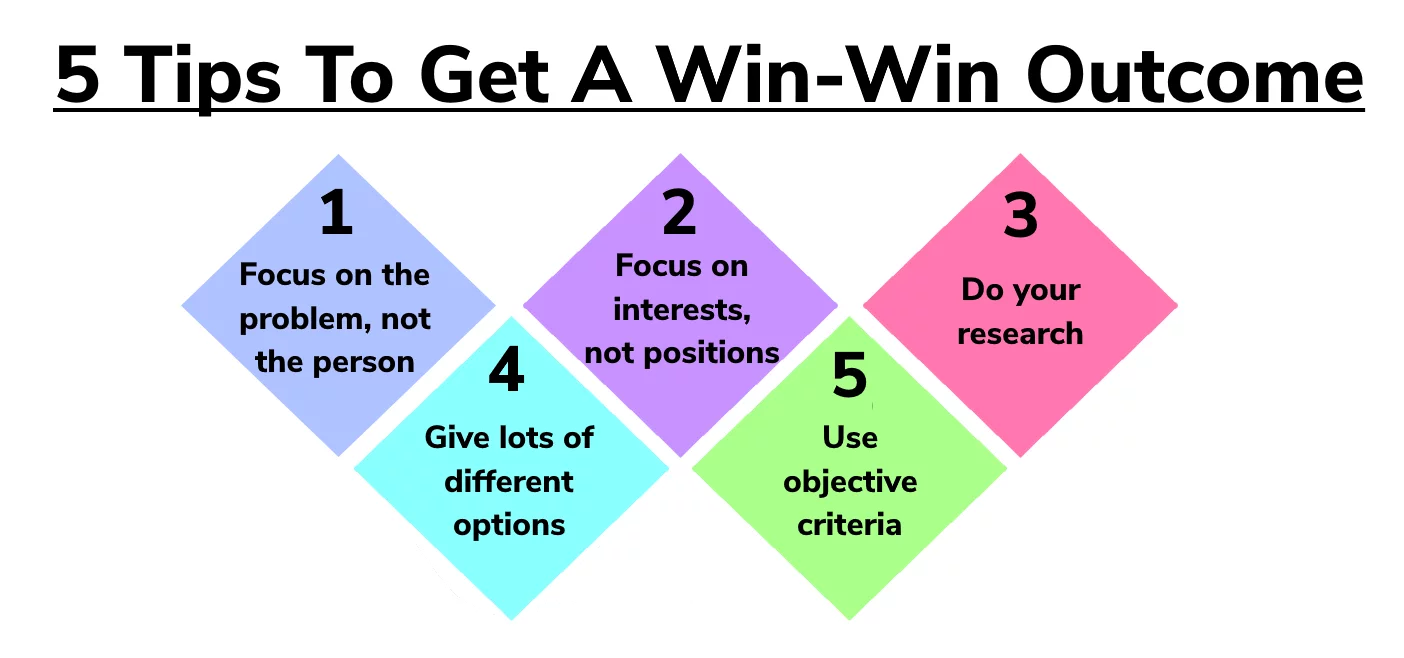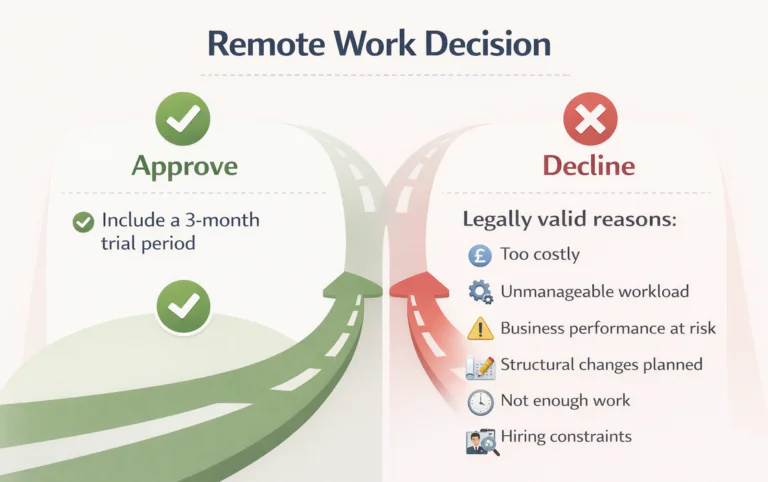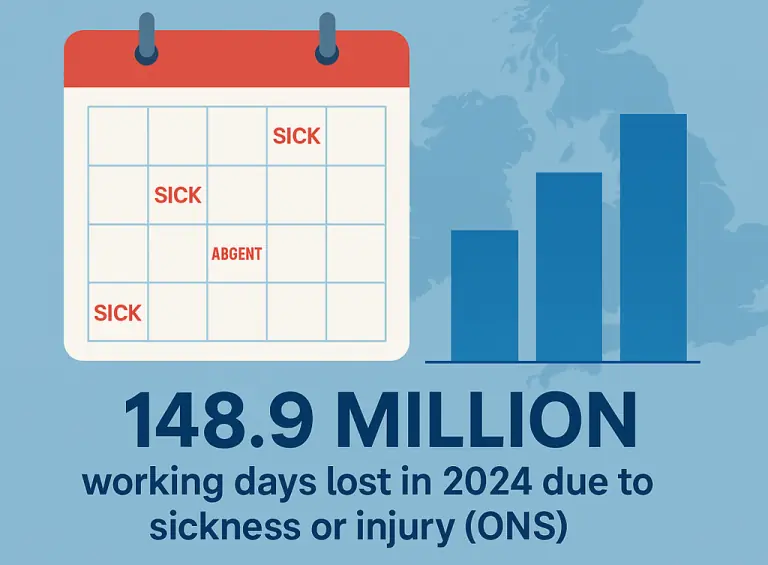
Getting To Win Win Outcomes – 5 Quick Tips
Contents
“Peace is not the absence of conflict, but the ability to cope with it.” -Mahatma Gandhi
Conflict is an unavoidable part of life.
Whenever there are groups of people, there are conflicts.
But there is always a way to get to a win-win outcome!
Win-Win Vs Win-Lose
“Win-win is a belief in the Third Alternative.
It’s not your way or my way; it’s a better way, a higher way” -Stephen Covey
Win-win means finding an acceptable outcome for you and whoever you are trying to agree with.
Neither side gets everything that it wants, but both sides gain more than they lose.
It is a way of handling an issue that should allow everyone to move forward.
Seeking win-win outcomes:
- Build positive relationships
- Increase trust
- Build respect
- Are a great long term strategy
Win-lose, on the other hand, is not the optimal solution to conflicts.
Imposing your will on the other party may be possible in some circumstances:
But it is not advisable even then.
A win-lose attitude means that you seek to win regardless of the loss to your colleague.
It is a competitive, zero-sum approach that often leads to manipulative behaviour.
Seeking win-lose outcomes leads to:
- Short-termism
- Hostility and increasing conflict over time
- Inflexibility
5 Ways To Get A Win-Win Outcome
Seeking a win-win outcome requires you to consider the needs, aims, and interests of the other side.
This approach turns a negotiation into a way to build and reinforce relationships.
There are five different ways we can use to reach a win-win outcome.
1. Focus on the problem, not the person:
Focus on solving the problem, avoid blaming the other person.
Remember that your disagreement is with the other person’s opinion on this one item.
Getting a win-win solution requires you to express your point of view clearly.
However, if you focus on how you see the problem, they will not take the point personally.
Equally, when they explain their position, be sure to use active listening techniques!
2. Focus on interests, not positions
“What’s in it for me?”
This question ultimately drives all our decisions and arguments.
Our interests are what triggers our actions.
When negotiating, if you focus on the other side’s interests rather than their position, you’ll have a far more constructive discussion.
3. A position is simply a suggested solution
The negotiation is there to find the optimal solution for everyone.
Don’t get hung up on positions.
Focus on interests and getting to the best solution for everyone.
4. Do your research
It is helpful to explain why you think what you think to the other side.
To help them understand your viewpoint?
Give them as much information to support your perspective.
5. Use objective criteria
Very occasionally, it won’t be easy to find common ground.
If the outcome is genuinely binary, there may not be shared interests.
When this happens, it is helpful to use objective criteria to reach a conclusion.
If both sides can agree to the criteria, they can ensure that their interests are considered.
To ensure that this works well, the criteria should be:
-
- Agreed by both sides
- Independent of both sides
- Fair
If an objective outcome isn’t possible, think about deferring the decision to an independent but mutually acceptable third party.
Example: Win-Win vs Win-Lose
Your boss asks you to stay late to finish an urgent task when you plan to meet friends.
Your boss knows about your plans.
A win-win approach
Your boss says, “I know you have plans for today, and I’m sorry to ask you to stay late.
If you agree to stay, I’ll make sure that you leave early next week to make up for it.”
This is a difficult situation where someone is going to be unhappy.
However, the way your boss has approached it, he has also given you something!
This way, your boss gets the project done one time.
You get your night out with friends, even if it isn’t on the night you had hoped for.
In taking you into account and giving, he is creating a positive work environment and trust.
A win-lose approach
Your boss says that if you don’t say late, there will be consequences for your career.
He just imposes his will on you.
He does not consider your situation.
Although you may comply, it’s unlikely that you will be positive about your job in future.
When A Win-Win Solution Isn’t Appropriate
A win-win solution is not always appropriate.
There are times when it is impossible to get to a solution that satisfies all parties.
Sometimes it just isn’t an appropriate time to be negotiating at all.
For example, once a decision has been made:
The entire focus of a team should be on executing that decision as quickly and effectively as possible.
During the decision-making process, thoughts and ideas from your team should be sought out.
This is the time for team members to provide their input.
Once a decision has been made, it is unhelpful for team members to be questioning the decision.
Discussions at this point should not be encouraged.
Conclusion
Finding a win-win outcome is an essential skill.
As you rise through an organisation, you will face more and more ambiguous decisions.
This will become an increasingly valuable skill.
Before your next discussion with someone you disagree with:
Take 5 minutes to think through ways you could facilitate a win-win!
Whatever the outcome, we’re willing to bet it will be a much more productive conversation.
You can learn more about win-win outcomes with our line manager courses too!
- Facebook: https://www.facebook.com/profile.php?id=100066814899655
- X (Twitter): https://twitter.com/AcuityTraining
- LinkedIn: https://www.linkedin.com/company/acuity-training/






